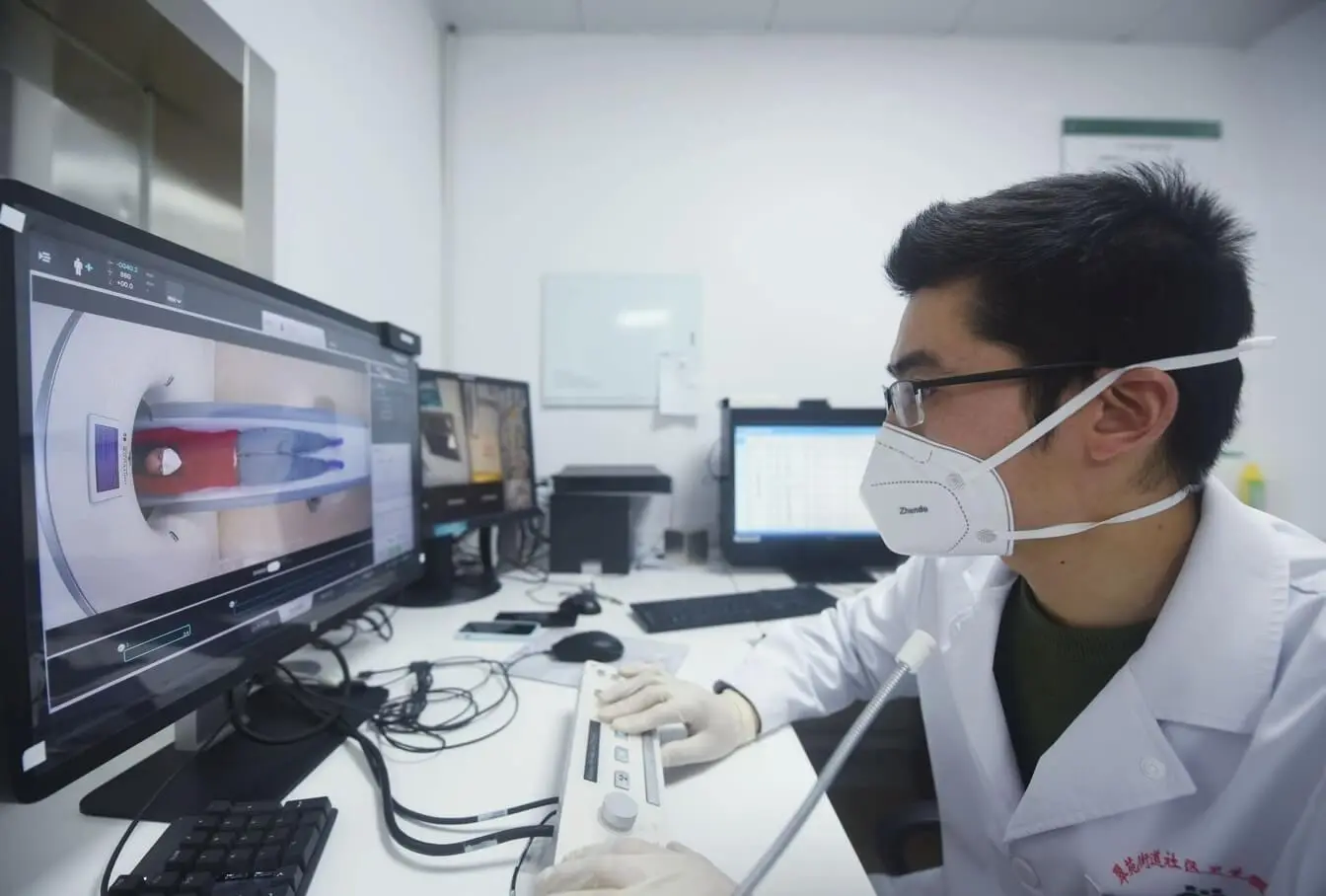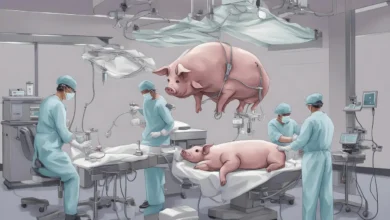AI in Breast Cancer Screening: A Leap Forward in Early Detection
In a groundbreaking development, artificial intelligence (AI) has proven to be a game-changer in the field of breast cancer screening. Preliminary results from a comprehensive trial reveal that AI can almost halve the workload of radiologists without compromising the accuracy of diagnosis. This development could potentially revolutionize the way we approach breast cancer screening, making it more efficient and effective.
Breast cancer is the most common cancer among women worldwide, with over 2.3 million women diagnosed each year, according to the World Health Organization. Early detection through screening can significantly improve prognosis and reduce mortality rates. This is where AI comes into play.

AI: A Reliable Ally in Breast Cancer Screening
The study, involving more than 80,000 women, suggests that AI screening is as effective as two radiologists working together. The AI did not increase false positives and almost halved the workload. The study, published in the Lancet Oncology journal, is the first of its kind to compare AI-supported screening directly with standard care.
Half of the scans were assessed by two radiologists, while the other half were assessed by AI-supported screening followed by interpretation by one or two radiologists. The AI-supported screening detected 41 more cancers, of which 19 were invasive and 22 were in situ cancers. The false-positive rate was 1.5% in both groups, demonstrating the reliability of AI in this context.
Easing the Burden on Radiologists
The use of AI resulted in 36,886 fewer screen readings by radiologists compared to the group receiving standard care, leading to a 44% reduction in the screen-reading workload. This could potentially alleviate the pronounced radiologist shortage in many countries and allow radiologists to focus on more advanced diagnostics, thereby shortening waiting times for patients.
Dr. Kristina Lång, the lead author from Lund University in Sweden, emphasized the need for further trials and evaluations before AI can be fully implemented in mammography screening. She also highlighted the potential of AI in easing the excessive amount of reading required by radiologists.
Looking Ahead: The Future of AI in Breast Cancer Screening
While the interim analysis is promising, the final results, which will determine whether AI can reduce the number of interval cancers and justify its use in screening, are not expected for several years. However, the preliminary findings indicate that the use of AI in mammography screening is safe.
The NHS in England described the research as “very encouraging” and is already exploring how AI could help speed up diagnosis for women, detect cancers at an earlier stage, and save more lives. Dr. Katharine Halliday, the president of the Royal College of Radiologists, echoed this sentiment, stating that AI holds huge promise and could save clinicians time by maximizing efficiency and supporting decision-making.
In conclusion, the integration of AI in breast cancer screening could potentially revolutionize the field, making early detection more efficient and effective. As we await the final results of the trial, the preliminary findings provide a glimpse into a future where AI plays a crucial role in healthcare, particularly in the fight against breast cancer.
Article Reference:
- https://www.thelancet.com/journals/ebiom/article/PIIS2352-3964(23)00063-4/fulltext
- https://www.politico.eu/article/ai-improves-breast-cancer-detection-rate-20-percent-swedish-study/
- https://edition.cnn.com/2023/08/01/health/ai-breast-cancer-detection/index.html
- https://www.theguardian.com/society/2023/aug/02/ai-use-breast-cancer-screening-study-preliminary-results




